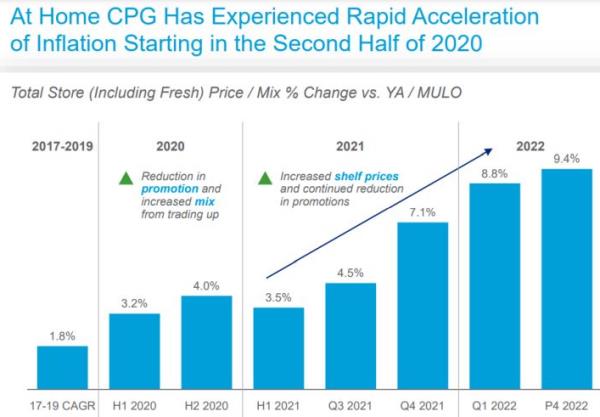Consumer confidence declined to 95.7 points in July according to the Conference Board survey and was down 2.7 points from June, mainly due to an increase in the Current Index that measures present sentiment. Inflation assessed by the Bureau of Labor Statistics CPI Index was unchanged from June but was 8.5 percent above July 2021. Although there are indications of an easing in fuel prices, consumers are avoiding discretionary purchases and concentrating on essentials. The trends that are becoming apparent include:-
 |

- Switching from nationally advertised brands to private label and lower-cost alternatives.
- Shoppers are changing from traditional supermarkets to discount grocery chains, such as Aldi, that have benefitted by as much as 10 percent from additional food sales.
- Middle-income consumers are purchasing in bulk from club stores that are able to offer lower prices based on volume and restricted selection with private brands predominating.
- There is a transitory increase in eating at QSRs, given the differential between inflation in groceries and in restaurants. QSRs have benefited from the morning day-period as workers return to offices. If inflation continues, demand for restaurant meals will wane with a reversion to more at-home meals and snacks and “brown-bagging” for those returning to offices and workplaces that do not provide catered meals.